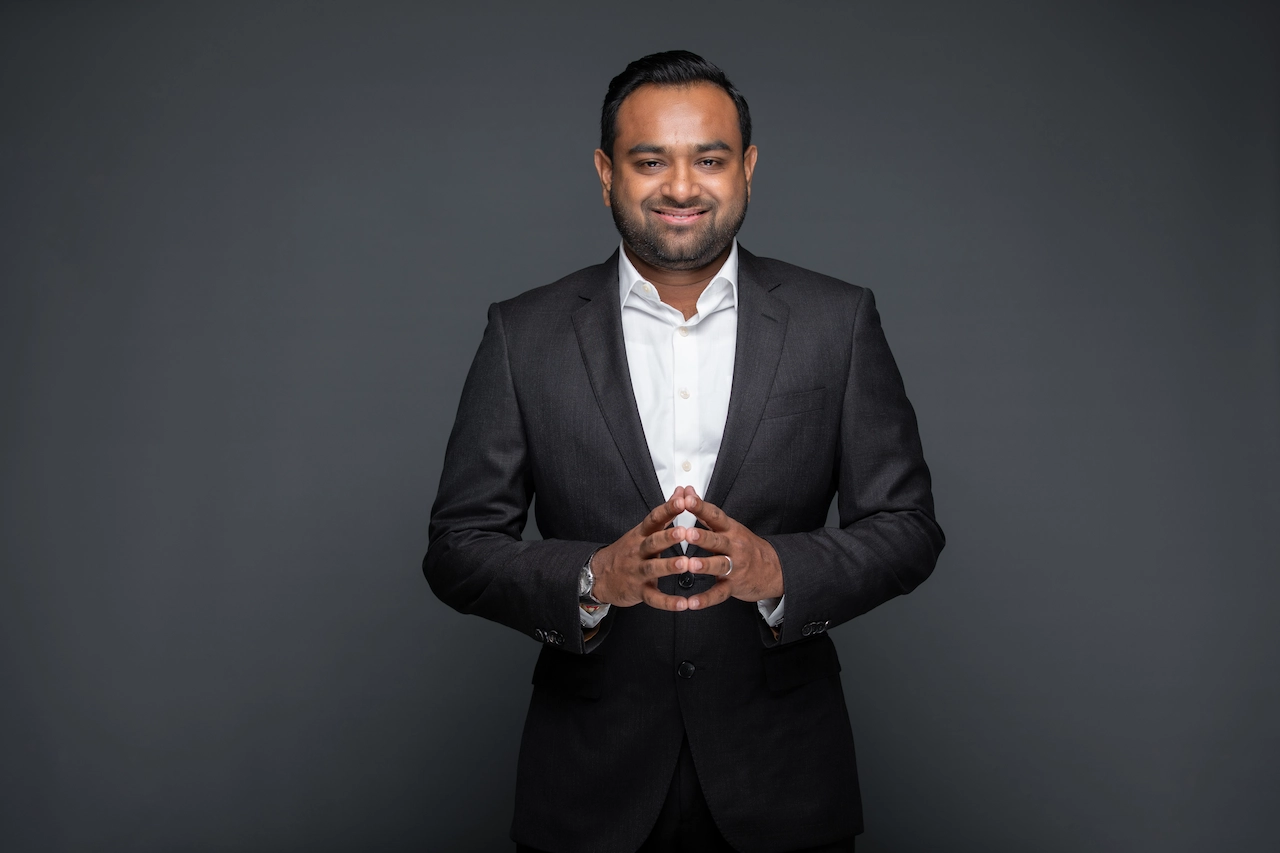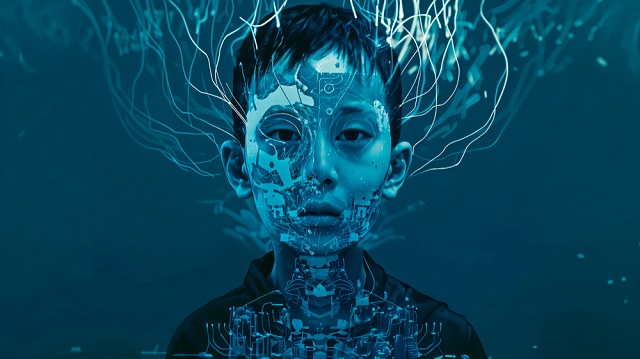As we enter a new era dominated by digital solutions—ranging from artificial intelligence (AI) to the Internet of Things (IoT)—industries are poised to experience transformative growth. These technologies offer unparalleled opportunities to drive efficiencies and fuel economic progress. However, as we advance, it is essential to address critical questions: How do we secure these technologies in an increasingly interconnected world? How do we balance innovation with ethical standards and regulatory frameworks? Most importantly, how do we ensure that the digital revolution doesn’t come at the expense of our planet?
Asela Waidyalankara is at the forefront of tackling these pressing challenges. With over 15 years of expertise in cybersecurity, AI policy, and digital governance, he is committed to bridging the gap between technological innovation and responsible, sustainable development.
A Journey Rooted in Safeguarding the Digital World
Asela Waidyalankara’s passion for technology began early in his career, leading him to explore its immense power and vulnerabilities. His journey began in telecommunications, where his exposure to advanced technologies revealed both opportunities and threats inherent in digital infrastructure. As his career advanced, Asela’s role as a Business Analyst, Programme Manager, and Business Development professional deepened his understanding of how technology shapes organizations and society at large.
It became increasingly clear to him that cybersecurity needed to evolve to protect individuals, businesses, and national infrastructures from growing cyber threats. This realization led Asela to dedicate his career to the dynamic, ever-changing field of cybersecurity. His expertise now positions Talos Consulting as a trusted advisor to public and private sector organizations in Sri Lanka and beyond. Under his leadership, Talos Consulting has emerged as a regional cybersecurity leader, providing tailored solutions to safeguard critical infrastructure, protect personal data, and enhance digital resilience. Talos Consulting is committed to ethical practices and innovative solutions, making it a trusted partner in the cybersecurity landscape.
Navigating Cybersecurity’s Evolving Frontiers
Over the past 15 years, Asela has witnessed the rapid transformation of the digital landscape, which has reshaped how organizations approach cybersecurity. Cyber threats have become more sophisticated, often involving nation-states and organized cybercriminal groups. One of the most significant changes in cybersecurity is the shift from traditional perimeter-based security to a zero-trust model. Asela explains that technologies like IoT, cloud computing, and the internet have broken down the traditional boundaries of organizations, making security more distributed and complex. The zero-trust approach assumes no user or device, whether internal or external, is trustworthy by default. This model ensures continuous verification, authentication, and monitoring of every access request, minimizing the damage from potential breaches.
Asela also advocates for continuous cybersecurity training. As cyber threats evolve, organizations must continuously educate employees across all levels on the latest risks, such as phishing and ransomware. By creating a culture of cybersecurity awareness, organizations can reduce human error, which is a significant entry point for cyberattacks. Regular training, simulated attack scenarios, and a focus on upskilling employees are critical to strengthening an organization’s security posture.
Protecting Innovation through Ethical Standards
Asela recognizes the balance between innovation and security as one of the most pressing challenges today. As technology advances, so do the threats. To protect innovation, Asela emphasizes that AI’s potential in cybersecurity cannot be overlooked. By leveraging AI’s ability to detect patterns, predict risks, and respond to threats in real-time, organizations can significantly improve their cybersecurity strategies. However, Asela is also aware that AI itself poses risks, especially as adversaries may use AI to develop more sophisticated cyberattacks. To mitigate these risks, he advocates for developing AI policies that prioritize ethical practices, transparency, fairness, and accountability.
Asela envisions AI playing a critical role in shaping proactive cybersecurity strategies. By enabling rapid, precise responses to evolving threats, AI can help organizations bolster their security infrastructure and stay ahead in an increasingly complex digital world.
Bridging Geopolitical and Technological Challenges
Asela’s insights extend beyond organizational concerns to global issues in cybersecurity. He highlights the growing threat of cyber warfare, where nation-states are engaging in covert operations that undermine national security and destabilize global relations. The absence of universally accepted regulations governing cyber warfare only complicates these challenges, making it difficult to prevent conflicts in cyberspace.
Another concern is data sovereignty—how cross-border data flows are managed while respecting national laws. With businesses relying more on global data exchanges, ensuring data is properly governed across borders is becoming increasingly difficult. To address these issues, Asela stresses the importance of international collaboration in policymaking. AI ethics, digital privacy, and cybersecurity standards require global cooperation to create a safer, more transparent digital environment.
The Importance of Ethical Governance
Asela firmly believes that embedding ethical principles in technology governance is essential for building trust. As digital technology permeates every aspect of our lives, ensuring privacy, fairness, and accountability becomes crucial. Organizations must take proactive steps to integrate these ethical principles into their governance frameworks to foster responsibility and trust.
A fundamental step is implementing robust data privacy policies that protect individuals’ personal information and comply with regulations. Organizations must also prioritize regular training on ethical cybersecurity practices, ensuring that all employees understand the implications of their actions. Asela recommends appointing ethics officers or dedicated teams to oversee AI deployment, data management, and ensure transparency and accountability in digital practices. Regular cybersecurity audits can also ensure organizations stay ahead of emerging threats while maintaining ethical standards.
Shaping Customer-Centric and Resilient Innovation
In the digital age, Asela believes organizations need to develop strategies that balance security with customer-centric innovation. A solid foundation in cybersecurity is essential to protect digital assets and build trust with customers. Alongside this, organizations must understand their customers’ needs and leverage digital transformation to enhance both customer experiences and operational efficiency.
A strong data governance framework ensures responsible use and management of data while an adaptable technology infrastructure supports growth. Asela also stresses the importance of agility in digital strategies, enabling organizations to pivot quickly in response to technological innovations and market shifts.
Policymaking for a Safer Digital Future
Policymakers play a crucial role in guiding organizations through the complexities of cybersecurity and digital governance. Asela advocates for clear and comprehensive guidelines that enable organizations to understand their cybersecurity responsibilities while allowing for innovation. Public-private partnerships are essential for knowledge sharing and collaboration in addressing emerging threats.
Policymakers should also support the development of national cybersecurity frameworks and certifications aligned with international best practices. This allows organizations to benchmark their security measures and ensure compliance with global standards.
The Future of Work and Cybersecurity
The shift to remote work has transformed the cybersecurity landscape, driving organizations to adopt more secure and resilient digital infrastructures. Asela foresees a future where zero-trust models and AI-driven security solutions become standard. With the increasing use of cloud computing, AI, and IoT, organizations must address security challenges related to data access and identity management. Building a culture of cybersecurity awareness and continuous upskilling will be essential for organizations to stay ahead of evolving threats in the digital workforce.
Conclusion: Embedding Security into Innovation
Asela advises organizations to adopt a “security by design” approach to innovation. By integrating cybersecurity from the outset of product and service development, organizations can proactively address potential risks, ensuring secure, sustainable, and innovative solutions.
As technology continues to transform industries and societies, the challenge remains to secure these advancements without stifling progress. Asela Waidyalankara’s expertise and commitment to ethical governance, continuous learning, and international cooperation are key to navigating this complex digital landscape.




